College of Human Sciences
The role of storytelling in decolonising archival practices in the digital age
On 4 March, scholars from Unisa's College of Human Sciences (CHS) gathered to celebrate and officiate Prof Isabel Schellnack-Kelly as a full professor. Schellnack-Kelly delivered her paper entitled "Postmodernism and storytelling in decolonising the archival landscape through oral history methodology and its relevance in the digital age" during an online session.
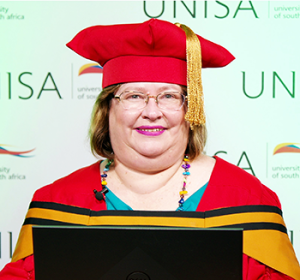
Prof Isabel Schellnack-Kelly
In her welcome address, Prof Eunice Seekoe, Acting Vice-Principal of Teaching, Learning, Community Engagement and Student Support, said that this gathering was to honour the eminence in scholarship demonstrated by Schellnack-Kelly. She continued: "You may be aware that an inaugural lecture is a formal presentation given by a newly appointed professor at a university and also introduces their research to their peers. It also serves as an opportunity for one to be celebrated and acknowledge the hard work done over the years."
After the inaugural lecture, Prof Madeleine Fombad, a distinguished full professor and lecturer in the Department of Information Science, responded to Prof Schellnack-Kelly’s paper.
Schellnack-Kelly, a lecturer in the Department of Information Science, was born in Kenya in 1967, and two years later her parents moved to Springs, east of Johannesburg. She studied completed a BA Honours in History and Economic History at the University of KwaZulu-Natal. She also holds a master's degree and PhD from Unisa. She has over 30 years’ experience in the field of archives and records management.
Schellnack-Kelly began her lecture by acknowledging and thanking her family, colleagues and the university management for the support she had received during her academic journey, saying: "This is not a one-man achievement; this is a sign that through great support structure and dedication, one can achieve much."
Her paper explored the critical integration of postmodernism and storytelling within oral history methodologies, specifically focusing on decolonising archival practices in the digital age.
The aim of the lecture was to examine how postmodernist theories challenge established archival narratives, advocating for a reconsideration of power dynamics and the validation of multiple truths. "Additionally," said Schellnack-Kelly, the incorporation of storytelling, a core aspect of indigenous knowledge transmission, into archival frameworks is assessed for its potential to foster more inclusive and equitable cultural heritage representation. With the rapid digitisation of archival resources, this paper also investigates the dual opportunities and challenges presented by digital technologies in preserving diverse narratives."
Her research aimed to propose innovative solutions that amalgamate postmodernist principles, oral history techniques and digital advancements to create a responsive and inclusive archival paradigm that effectively decolonises the preservation and representation of indigenous knowledge.
Schellnack-Kelly cautioned millennials and Generation Z not to depend too much on digitalisation feeds, explaining that archives, records management and oral history offer something profound, such as connection to the essence of humanity. She continued: "You are the bridge between the past and the future, ensuring stories aren't lost in the noise. Your generation understands the power of technology and storytelling. Use this to preserve diverse voices, amplify untold narratives and challenge the silences of history."
"In archives," said Schellnack-Kelly, "you’ll protect the memories that shape our identity. In records management, you’ll ensure transparency and accountability. Through oral history, you’ll give life to voices that defy the written word. The world needs your energy, your innovation and your commitment to truth. By safeguarding the past, you empower future generations to learn, grow and transform. Be the custodians of memory. Be the change-makers history will remember."
Prof Zethu Nkosi, Executive Dean: CHS, delivered a congratulatory message: "Your expertise, passion and commitment to excellence have undoubtably earned you this recognition. I hope you use this opportunity to inspire and mentor future generations of scholars."
Acting Chair of the Department of Information Science, Prof Nampombe Saurombe, extended her warmest congratulations. Saurombe said it is with great pride that the Department of Information Science celebrates the successful inaugural professorial lecture delivered by Schellnack-Kelly. "Professor Schellnack-Kelly’s journey to this significant academic milestone reflects her unwavering commitment to excellence in research, teaching, and service," she said. "As archival repositories continue to strive to transform in South Africa for the benefit of all communities, her work has not only advanced theoretical frameworks within Information Science but has also fostered practical applications that benefit our wider archival community. The clarity and depth of insight evident in her inaugural address perfectly exemplifies why she is such a valued member of our departmental family."
* By Nnana Martina Jege, Communication and Marketing Specialist, CHS
Publish date: 2025-03-17 00:00:00.0


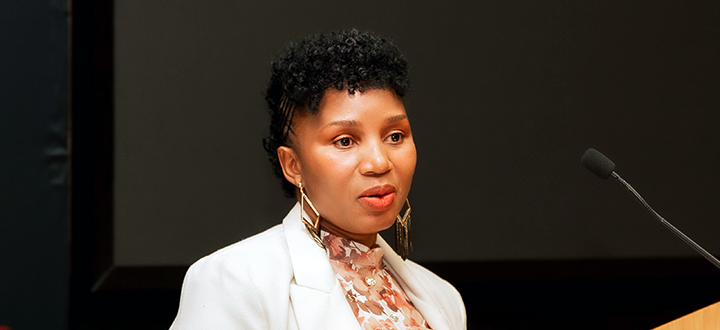 Wings of opportunity: Bringing drones into the classroom
Wings of opportunity: Bringing drones into the classroom
 Visionary youth champion to address Unisa’s Innovation Festival
Visionary youth champion to address Unisa’s Innovation Festival
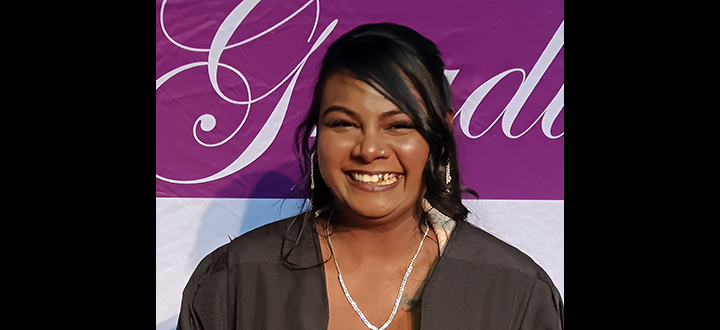 Finding the strength to persevere
Finding the strength to persevere
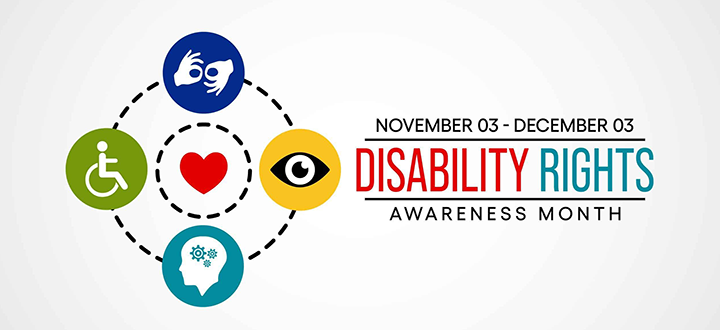 Disability awareness at Unisa: Disability is not inability
Disability awareness at Unisa: Disability is not inability
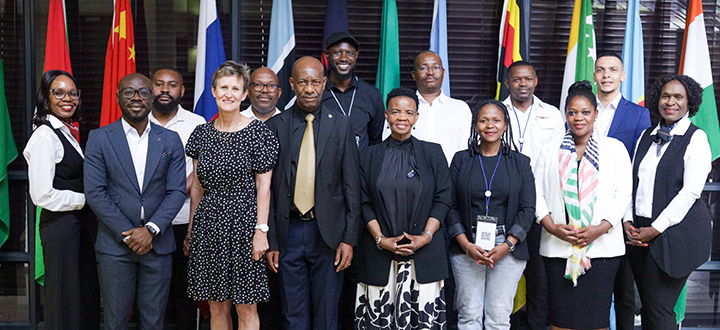 Unisa symposium shares knowledge on building SA's aviation economy
Unisa symposium shares knowledge on building SA's aviation economy